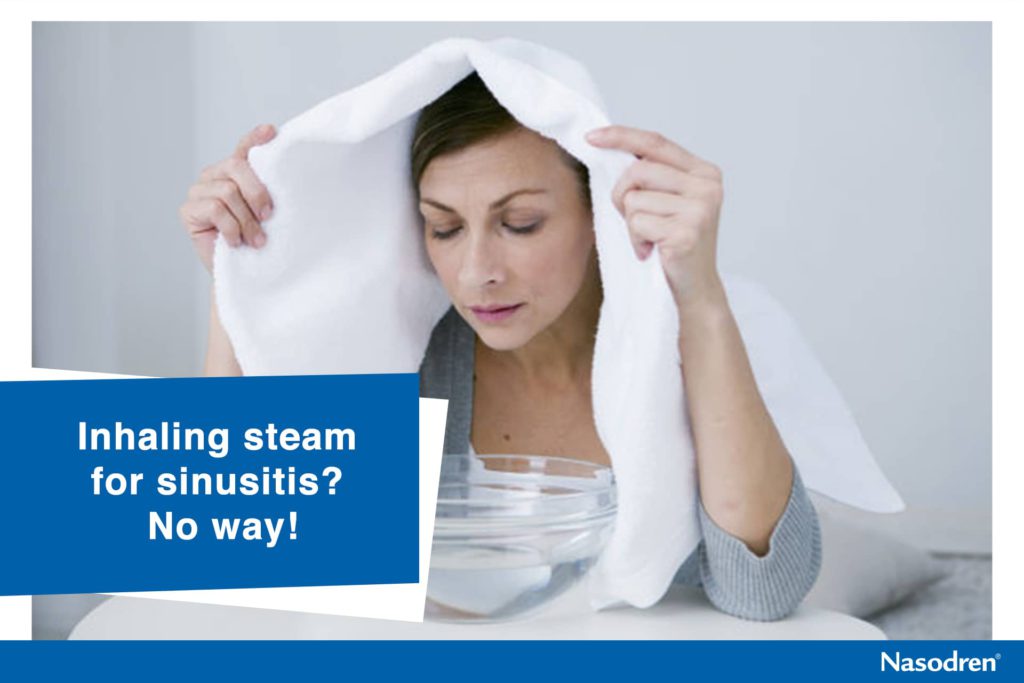Inhaling steam is one of those home remedies that has been passed down through the generations. Maybe your grandmother once told you that putting a towel over her head and breathing in the steam from a container full of boiling water would ease your sinus problems.
The point is, if she’s been doing it, we have some news for you: this remedy doesn’t help at all!
A new study carried out by researchers at the University of Southampton (UK) and published in the Canadian Medical Association Journal (CMAJ) has dealt the final blow to this traditional method to combat chronic or recurrent sinusitis. Indeed, a randomized controlled trial involving 871 patients from 72 primary care practices in England showed, as we expected, that steam inhalation doesn’t alleviate sinusitis symptoms such as nasal blockage, post-nasal drip, facial pain or loss of smell.
However, inhaling steam is ineffective as an alternative treatment for sinusitis symptoms, as it does not attack the root of the problem (inflammation of the sinuses filled with thick mucus). To feel significant relief from symptoms, it is necessary to drain those secretions from the sinuses and regain the nasal cleansing cycle’s correct function. The right product is needed. And this cannot be obtained by inhaling steam.
This is not the only finding made by this research team since they also tested the effects of nasal irrigation with saline solution, another alternative treatment widely used by those who suffer from sinusitis. The results showed an improvement at three and six months, with some symptomatic benefit, but in the end, nasal irrigation turned out to be less effective than previously thought.
More research to prevent a global threat
It is not a coincidence that researchers are struggling to find alternative methods of treating sinusitis. There is growing concern about the overuse of antibiotics, leading to what is already considered a major scientific challenge: antibiotic-resistant bacteria, necessitating more research in this field.
“This global threat is genuine, and we need to find alternative ways to educate and treat people who do not need antibiotics,” added Dr. Little. All of this makes even more sense considering that only 2% of sinus infections are caused by bacteria, making antibiotics unnecessary in most sinus inflammation cases. But if that is so clear, why are antibiotics still being prescribed so lightly
